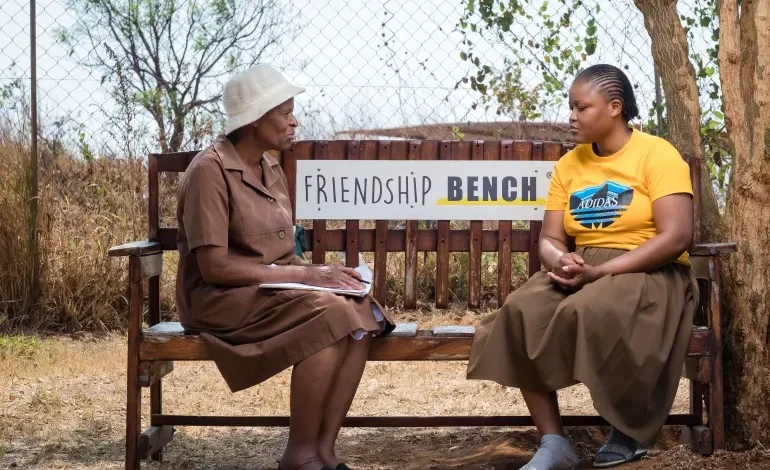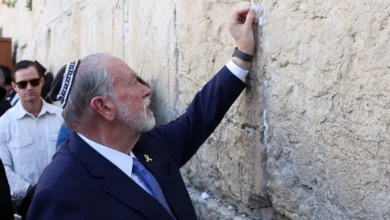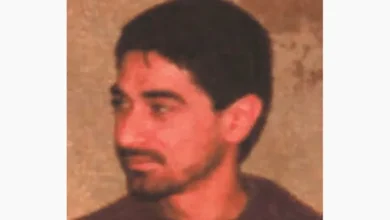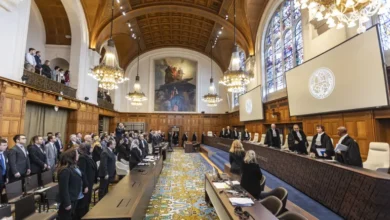How counsellor-grandmothers of Zimbabwe are averting a mental health crisis

In Zimbabwe, a country of 15 million people, there are fewer than 20 psychiatrists.
And mental health issues are rife, given a litany of trauma unaddressed for decades: first the horrors of British colonialism and the liberation struggle and then the Zimbabwean army’s killing of thousands of people in the southwestern region of Matabeleland for allegedly supporting ex-guerrillas who turned on the government after independence.
Even today, the impact of socioeconomic hardships resulting from a faltering economy, high unemployment and the highest inflation rate in the world along with an ailing healthcare system have made the Southern African country fertile ground for depression, post-traumatic stress disorder, domestic violence and suicide.
According to the World Health Organization (WHO), Zimbabwe has one of the highest suicide rates in Africa.
Consequently, most people living with mental health issues, especially those who cannot afford the steep psychiatrist fees, do not get any help.
It is against this backdrop that psychiatrist Dr Dixon Chibanda came up with the idea of training lay health workers to counsel those struggling with mental health problems.
Two unrelated, tragic events prodded him into action. The first was the 2004 suicide of Erica, a patient he had been treating for three years, after she failed to raise the bus fare to travel to Harare for a follow-up session at the government hospital where he worked. The fare was less than $20.
”I was stunned, heartbroken and felt guilty when her mother called me to say she had taken her own life,” Chibanda says.
A few months later, the government razed tens of thousands of unauthorised residential properties across the country. The exercise, called Murambatsvina, or Reject the Filth, created at least 700,000 homeless people. This inevitably led to an increase in the number of people in need of mental health support.
After the much-criticized home demolitions, described by the United Nations as a violation of international law, the authorities decided there was a need for some psychological intervention.“But there was no money or trained personnel to implement a programme. Nurses and doctors in any primary health facility are always overworked,” an exasperated Chibanda says.
The rise of the grandmothers
The only people available were elderly female community health workers at Harare City Council clinics who were unskilled for psychosocial work. So Chibanda worked with the Ministry of Health and Child Care and the University of Zimbabwe to develop a pilot programme in 2006 that trained 14 lay health workers, popularly referred to as grandmothers, in evidence-based problem-solving therapy. The grandmothers on average are 50 years of age.
“Grandmothers are rooted in communities, and they are the custodians of our culture and wisdom and already play a pivotal role in problem-solving in communities,” Chibanda says. Grandfathers have signed up as counsellors too, but he says they lack the commitment of the grandmothers. “They are unreliable and often leave because they have to get jobs or do other things.”
The training aimed to enhance the grandmothers’ listening skills, empathy and abilities to help patients gain the confidence to find solutions to their problems. It equipped them with the tools to counsel patients with common mental health disorders such as depression and anxiety. Those with more severe problems are referred to mental health professionals.
The initiative became known as The Friendship Bench because the counselling happens on made-for-purpose benches.
One of the thousands of people who have benefitted from The Friendship Bench is Blessing (not her real name), a 45-year-old mother of two who started going to the bench in 2018.
“I was down because my husband, who had relocated to South Africa to find a job, had taken another wife and had stopped sending money home,” she says. She is also HIV-positive. “I was reluctant to engage the grandmother who approached me when I went to the local clinic for treatment because I feared they would spread the word that I was on antiretrovirals.”
“But I felt better after three sessions. They pointed me in the right direction. The grannies are now my friends.”










